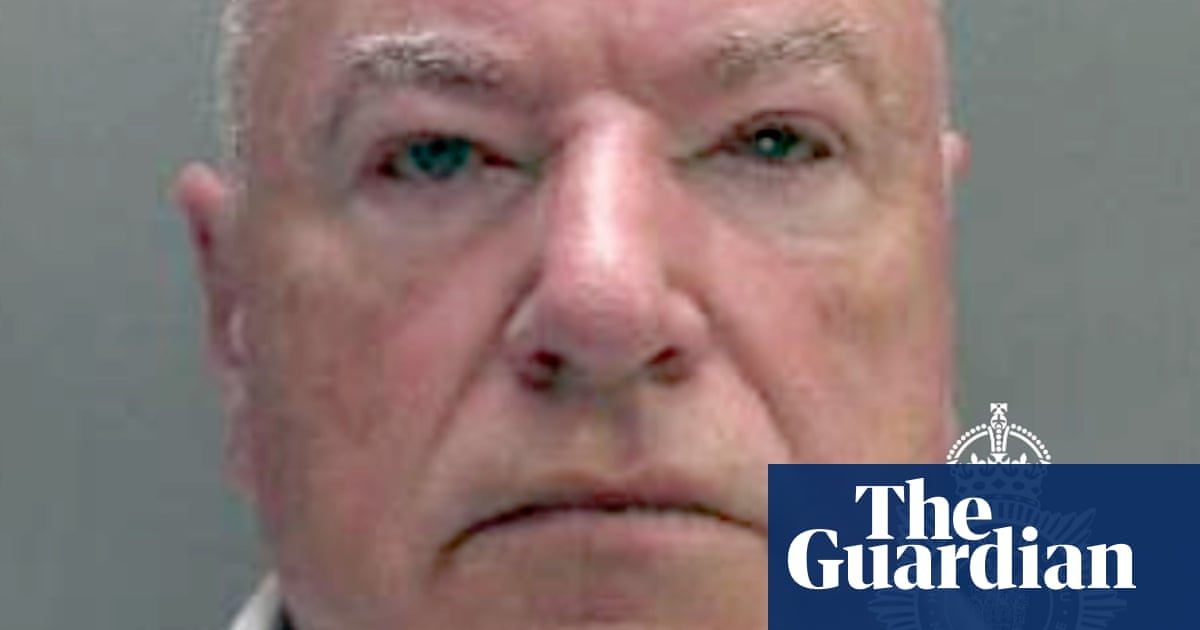
There was a moment during the trial of my former headteacher that broke my heart when I read about it. Child E was giving evidence of how Neil Foden would take her on trips to Liverpool, pulling over in country lanes on the way back so that he could have sex with her. When the defence suggested that the purpose of these detours was so that he could recce new routes for country walks, she laughed.
Why did reading about the laugh get to me so much? I think it was because it implied a tragic worldliness. The loss of childhood innocence. Children should not be laughing, seemingly bitterly and cynically, about the sexual proclivities of adult men.
There were other, awful details of grooming and abuse in the trial. How Foden told Child A to take “their secret” to her grave. How he called Child E his “little sex toy” and put his hands around her neck. How, 45 minutes before he was arrested, he deleted 17 images sent to him by one of the victims.
Last week, Foden was convicted of 12 counts of sexual activity with a child, and several other offences, which all took place from January 2019 to September 2023. My phone lit up with text messages from friends and former classmates: “Guilty.”
Foden was not well liked. He made headlines three years ago for instructing catering staff to refuse to feed any pupil whose parental school meal account was more than 1p in debt. Two years ago, a video emerged of him appearing to grab a student by the scruff of his neck. In his summing up, the judge referred to him as an “arrogant, controlling individual, used to getting his own way”. That tallies with my impression of him; even as a 12-year-old, I was uncomfortable with the way he ran the school, with his authoritarian approach to school uniform compliance, especially when it came to the girls – it felt pervy. Now, you find yourself wondering: had abuse been happening for all these years? Our parents wonder, too.
When you send your child to school, you are entrusting them to other adults whom you hope – you have to hope – will safeguard them. Not only did Foden fail in this, but the local council seems to have failed as well. During the trial, the court heard how, in 2019, a teacher had raised concerns with Gwynedd council about Foden meeting teenagers alone, but it decided not to formally investigate.
There are many questions to answer. Local parents are livid and feel betrayed. To quote the former Welsh assembly member Helen Mary Jones: “There were red flags everywhere and, yet again, we find ourselves in a position where, in our education system, where our children should feel safe, comfortable and happy, a powerful man has misused his authority and no one has stepped up to stop him – except those who didn’t have the power to do so.”
Foden was extremely powerful locally. He was the headteacher of one large comprehensive and the executive head of another. He was previously an executive member of the National Education Union. He was accused of bullying staff, and during the hearing a witness described his methods as “management by fear”. Anyone who knows how power works in small communities will understand how brave these girls have been in coming forward. Child A was hyperventilating when she told a teacher what was going on. She was, the teacher said, “terrified”. A relative said that Child A sometimes didn’t want to go to school or would phone asking to be picked up early. It is difficult to think about the impact that this abuse will have had on the children’s education and on their lives, now and in the future.
The acts that Foden committed have cast a shadow not just over the educations and lives of the children he abused, but also over the school days of all his former pupils. It’s a curious feeling that is not unique to my school’s alumni, but to anyone who discovers that a former teacher is a predator who has abused the position of trust that is supposed to be a central tenet of their role. It’s sad, because we had some excellent teachers.
That is nothing compared with what the victims have been through. If there is any comfort to be taken from this case, it is that they were believed, supported and saw justice delivered relatively quickly. They are not alone in their pain, and more and more people are speaking out about abuse in schools, both now and in the past. These conversations are long overdue, but equally important is finding out how and why abuse like this continues to happen, and identifying the people and institutions that enable it.
Rhiannon Lucy Cosslett is a Guardian columnist












